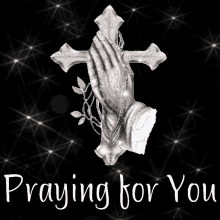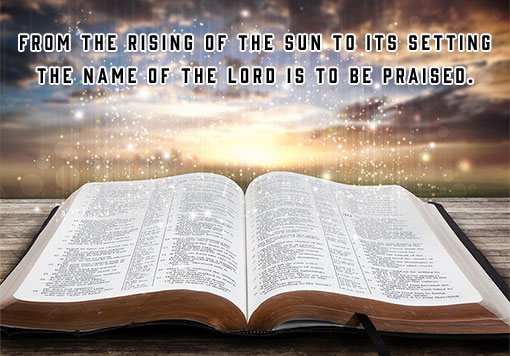
Delivering The Good News”
The Cross Bearers Motorcycle Ministry has chosen as our theme for 2021 – “Delivering The Good News”. We first begin “delivering the good news” through our prayers”, because prayer is the most frequently urged activity for promoting the gospel or rather the “Good News”. In Colossians 4:2-4 Paul instructs the Colossians to: 2 Continue steadfastly in prayer, being watchful in it with thanksgiving. 3 At the same time, pray also for us, that God may open to us a door for the word, to declare the mystery of Christ, on account of which I am in prison— 4 that I may make it clear, which is how I ought to speak.

In our ministry’s role in prayer we are to be fervently praying for people who have yet to be persuaded to faith in Christ so that they might be saved. The Apostle Paul writes in Romans 10:1: “Brothers, my heart’s desire and prayer to God for them is that they may be saved.” In other words, we will be praying for the unbelievers as well as the unsaved.
We will also be praying for the ongoing work of those whose task it is to evangelize those unbelievers. As Paul writes in Ephesians 6:19, he says to: “pray also for me, that words may be given to me in opening my mouth boldly to proclaim the mystery of the gospel, for which I am an ambassador in chains, that I may declare it boldly, as I ought to speak.”
Therefore, our ministry will continue to promote the gospel by praying for those who are doing the work of the gospel, here and around the world. And though some of us may not feel confident speaking to others intimately about the message of salvation, each of our members can and does feel confident speaking to God about the salvation of others.
Our motorcycle ministry will also be “Delivering The Good News” through our “Personal Conduct” simply because each member has decided to live expressly for Christ. Matthew 5-7 says: 7 Show yourself in all respects to be a model of good works, and in your teaching show integrity, dignity, 8 and sound speech that cannot be condemned, so that an opponent may be put to shame, having nothing evil to say about us.
The Cross Bearers will conduct themselves in a manner that when people look at who we are and how we live they’ll learn something about our Father in heaven. We realize that in God naming us as His children, God has undoubtedly put His reputation in our hands. We also accept the fact that we’re the public face of the Kingdom of God and what we are and how we behave will affect what people think of our God.

What Is The Gospel?

The gospel is “good news”—the good news of what God has done in Jesus Christ. The Bible depicts human beings, all human beings everywhere, as in revolt against God, and therefore under his judgment. But although God stands over against us in judgment because of our sin, quite amazingly he stands over against us in love, because he is that kind of God—and the gospel is the good news of what God, in love, has done in Jesus Christ, especially in Jesus’s cross and resurrection, to deal with our sin and to reconcile us to himself.

Christ bore our sin on the cross. He bore the penalty, turned aside God’s judgment, God’s wrath, from us, and cancelled sin. The brokenness of our lives he restores; the shattered relationships he rebuilds in the context of the church; the new life that we human beings find in Christ is granted out of the sheer grace of God. It is received by faith as we repent of our sins and turn to Jesus. We confess him as Lord, and bow to him joyfully.
One day he will make all things new. The good news culminates in a new heaven and a new earth, the home of righteousness, where neither sin nor any of its effects can survive, and where we enjoy the presence of God forever in the context of resurrection existence.
And we announce this good news to people everywhere, entreating them with the words, “Be reconciled to God!” by repenting of sin, asking God for his mercy, and trusting Jesus Christ.

Virtue In Christianity
written by: Encyclopedia Britannica

Virtue, in Christianity, any of the seven virtues selected as being fundamental to Christian ethics. They consist of the four “natural” virtues, those inculcated in the old pagan world that spring from the common endowment of humanity, and the three “theological” virtues, those specifically prescribed in Christianity and arising as special gifts from God.
Virtue has been defined as “conformity of life and conduct with the principles of morality.” The virtues are thus the practical attitudes and habits adopted in obedience to those principles. They have been conventionally enumerated as seven because that number is supposed, when combined with its opposite number of seven deadly sins, to cover the whole range of human conduct.

The natural virtues are sometimes known as the four cardinal virtues (from Latin cardo, “hinge”) because on them all lesser attitudes hinge. They are prudence, temperance, fortitude, and justice. This enumeration is said to go back to Socrates and is certainly to be found in Plato and Aristotle. Late Roman and medieval Christian moralists—such as Ambrose, Augustine, and Thomas Aquinas—took over the list as a convenient summary of the teaching of the ancient philosophers and of the highest excellence at which they aimed.
To these four, Christianity added the three theological virtues of faith, hope, and love. This classification was taken over directly from the Apostle Paul, who not only distinguished these three as the specifically Christian virtues but singled out love as the chief of the three: “So faith, hope, love abide, these three; but the greatest of these is love.” According to Christian teaching, the theological virtues do not originate from the natural man. They are imparted by God through Christ and are then practiced by the believer.
In the Christian ethic, love, or charity, which is omitted from the list of the pagan philosophers, becomes the ruling standard by which all else is to be judged and to which, in the case of a conflict of duties, the prior claim must be yielded.

